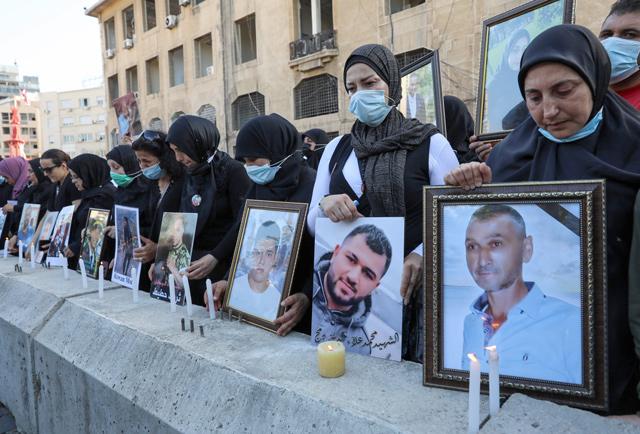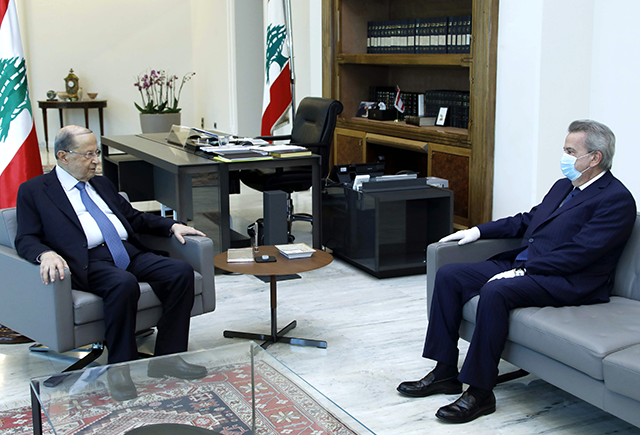You are here
Lebanon's Diab urges donors to 'save' crisis-hit country
By AFP - Jul 07,2021 - Last updated at Jul 07,2021

Relatives of victims of Beirut's port blast hold their photos as they rally in the Lebanese capital on Saturday, to urge answers from a sluggish probe towards prosecuting those responsible of the catastrophe (AFP photo)
BEIRUT — Lebanon's caretaker premier Hassan Diab on Tuesday urged donors to "save" the country, despite the fact it has no formal government, as it struggles through a dire economic crisis.
Warning that Lebanon is "just days away from a social explosion", Diab urged the international community to "help save Lebanese from death and prevent Lebanon's demise".
He urged foreign donors to release financial aid even though the multi-confessional country has failed to form a new government in almost 11 months.
"Linking aid to Lebanon with government formation has started to threaten the lives of Lebanese," Diab told a Beirut meeting with foreign envoys.
Withholding funds, he argued, does "not affect the corrupt. Instead it is the Lebanese people who pay a heavy price", he said. "Save Lebanon before it's too late."
Lebanese are grappling with spiralling devaluation and painful shortages as the country plunges deeper into what the World Bank has called one of the world's worst economic crises since the 1850s.
The international community has pledged humanitarian aid but conditioned any financial assistance to the cash-strapped interim government on the formation of a new cabinet to launch reforms.
But despite international pressure, led by former colonial power France, the deeply divided political elite has been unable to agree on a cabinet line-up for almost 11 months.
Diab stepped down and has served as caretaker premier since the Beirut Port explosion of last August 4, when hundreds of tonnes of ammonium nitrate fertiliser blew up, killing more than 200 people and ravaging swathes of the capital.
The disaster overwhelmed Beirut hospitals amid the novel coronavirus pandemic.
In the months since, the economic crisis that started in the autumn of 2019, sparking mass street protests, has only deepened.
The Lebanese pound has lost more than 90 per cent of its value to the dollar on the black market. Plunging foreign currency reserves have translated into long queues outside petrol stations and imported medicines running out.
"Lebanon is passing through a very dark tunnel, and the suffering has reached the point of tragedy," Diab said.
Related Articles
BEIRUT — The Lebanese judge investigating the huge explosion that rocked Beirut in August has suspended the probe after two ministers he cha
TEHRAN — Iran is watching developments in Lebanon closely, wary of losing any of its hard-won influence after a deadly mega-blast in Beirut
BEIRUT — Prime Minister Hassan Diab said on Friday that Lebanese bank deposits have plunged $5.7 billion in the first two months of the year
















